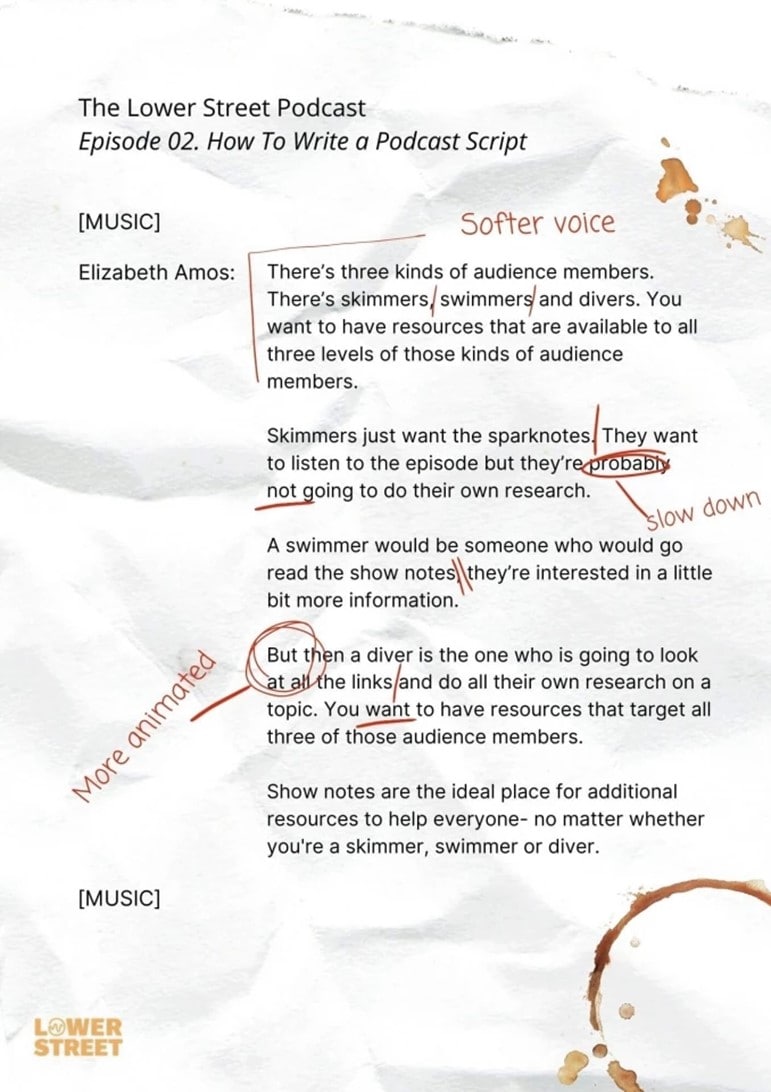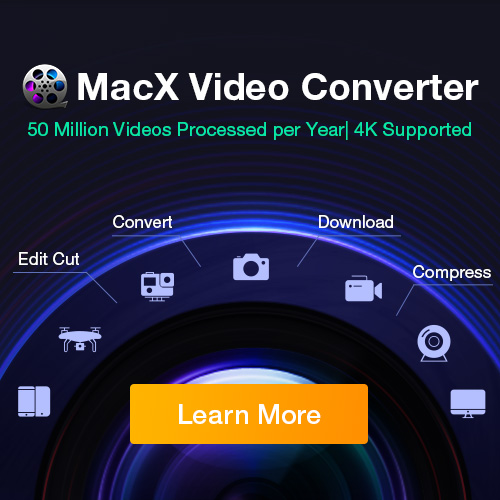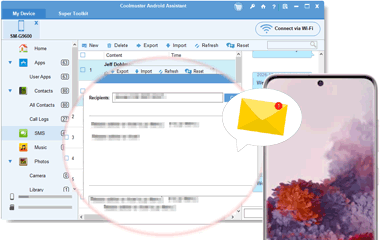
"2024 Approved A Step-By Step Guide to Crafting Captivating Podcast Scripts (Plus Free Examples)"

A Step-By Step Guide to Crafting Captivating Podcast Scripts (Plus Free Examples)
Roaming about and searching on the internet for “How to write a podcast script” when you are about to debut in the podcast industry is hectic. Right? Not anymore, as we have already figured this out for you. Ahead, you will learn what podcast script is. How to write one? Also, we have listed some pro tips and added some ready-to-go templates to help you get started. So, stay connected till last.
What Is a Podcast Script, and Why Do We Need One?
A podcast script is simply a plan for the podcast that outlines the main topics in a sequence. Based on your feasibility and the type of show, it can be detailed or include the essential things. However, the majority of podcast scripts adhere to the following basic format.

Intro
The intro is supposed to build the audience’s interest as soon as they start listening to the podcast. So here, you will warmly welcome your listeners, say some icebreaker sentences, give your intro, and state teaser lines about the podcast.
*Pro tip: Don’t reveal everything; keep it a little mysterious to hook listeners till the end.
Guest intro
The guest introduction is crucial because people listen attentively if an expert addresses the topic. So, courteously welcome your guest, and mention his name, profession, achievements, and background (if related to the topic).
Sponsor message
Every brand has a distinct set of preferences; sometimes, they give you a script that you have to follow word for word, and other times they leave it up to you. In either case, the sponsor messaging should look natural and blend with the layout of your show. Besides, a persuasive sponsor message script will motivate listeners to buy brand products, thereby boosting your number of sponsors—a win-win situation.
Segue
When there are multiple segments in an episode, transitions make switching from one to the next seamless. For example, it may be a piece of music, a phrase, motion graphics, etc.
Summary
It’s challenging to retain everything after listening to a significant amount of information. Hence, to facilitate listeners, summarize the entire episode and revise the key takeaways.
Outro
It’s time to acknowledge the listeners and guests for their precious time. To tie listeners to your show, you can mention references, make announcements, and reveal the topic and air time of the upcoming episode.
Call to action
A straightforward call to action can boost the reach of the podcast. Here is how?
Invite the audience to leave a review, share their thoughts about the topic in the comment section, and show your availability to interact with them and answer their queries.
Why do you need one?
Having said that, let me tell you why writing a podcast script is crucial before you hit the record button. First, having a podcast script will simplify things for you and your guest, as you’ll know the next point already; otherwise, you will make a mess.
Averting unnecessary gaps and saving time requires planning the segment order and making a list of the main points to discuss. The script ensures you stay on topic and organized to keep listeners interested. A well-planned podcast also requires less effort in post-production. So if you want a streamlined recording experience, take your time and craft a top-notch podcast script.
Podcast Script Outline Templates
As promised, it’s time to introduce you to the three most common podcast script templates. Pick the one that best suits your needs and take your podcast to the next level.
Template 1: The Word-For-Word Podcast Script
The first right candidate for the word-for-word script is the one about to land in the podcast world. All that is left to do is carry them out correctly since most things have already been written down. This format should also be used by someone presenting a lot of statistical data, facts, and figures.
Structure
- Intro: Introduce yourself, the topic of discussion, and the guests if there; episode teaser (Span: ___ )
- [Sponsor message]
- [Theme music]
- Topic 1: _____(Span: __ )
- Principal point
- Supporting points
- Quotations, data, or other facts
- Segue (can be a phrase, a piece of music, or a sound effect)
- Topic 2: _______(Span: __ )
- Principal point
- Supporting points
- Quotations, data, or other facts
- [Sponsor message]
- Topic 3: _______(Span: __ )
- Principal point
- Supporting points
- Quotations, data, or other facts
- Outro: _____ (Span: __ )
- Overview
- Call to action
- [Closing theme music]
Template
[Intro music]
Intro:
Hello and welcome to (show name); I’m (hostname). This is an episode (number), and we’ll talk about (topic name). Our today’s episode guest is (guest name), who has expertise_______
Sponsor message
Topic 1:
[You are going to discuss the first topic here. It should be exciting and relatable.]
Segue (can be a phrase, a piece of music, or a sound effect)
Topic 2:
[Second topic can be extracted from the discussion of earlier points to maintain continuity.]
Transition into…
Ideas 3, 4, and 5…:
[Keep the process going until all the topics have been discussed.]
Outro:
[Summarize all the important points] And with this, let’s end our today’s episode! Thank you so much (guest name) for joining us today. Thanks a lot, listeners, for your patience. I hope you enjoyed it; if you really did, please do follow me and leave some words in the comment section (or similar CTA).
See you in the upcoming episode with another interesting topic [topic name].
[Outro music]
Podcast Example:
Unfictional
An interesting narrative-style podcast hosted and produced by Bob Carlson.

S-Town
A crime story podcast hosted by Brian Reed from Serial Productions, a New York Times company.

Bill Burr’s Monday Morning
A solo podcast hosted by Bill Burr.
 NeoDownloader - Fast and fully automatic image/video/music downloader.
NeoDownloader - Fast and fully automatic image/video/music downloader.

What’s good about this template?
- Decrease the likelihood of missing any information.
- Ensure the proper coverage of each point within the allotted timeframe.
- Great for newbies, narrators, and solo hosts.
Template 2: The Planned Podcast Script
Instead of having a word-to-word description, the planned podcast script only serves as a guide, and the episode progresses naturally. This template is for you if you are skilled enough to derive the episode points on your own. Let’s see what it looks like.
Structure
- Intro lines
- Sponsor Message
- Subject 1: ___
- Notes
- Transition
- Subject 2: ___
- Notes
- Transition
- Subject 3: ___
- Notes
- Overview
- Outro
- Call-To-Action (CTAs)
- Ending music
Template
[Intro music]
Intro: Hello and welcome to (show name). I’m (hostname). This is an episode (number), and we’ll discuss (topic name). Our today’s episode guest is (guest name), who has expertise_______.
Sponsor message…
Subject 1: This is where the episode really begins. Plan how you will launch the topic.
Transition.
Subject 2: Enlighten the second subject without diverting too far from the main topic, and keep flowing until you reach the shore.
Transition.
Subject 3: As the show draws close, give details regarding subject three. The episode should be concluded appropriately with the final topic.
Outro: [Present an overview of the whole episode]. I am really grateful to our guest and you guys! Thanks for listneing. See you in the next episode on [Release date].
CTAs: If you want to hear more interesting podcasts like this one, follow the channel, and don’t forget to share it with friends.
Podcast Example
Smartless
“SmartLess” with Jason Bateman, Sean Hayes, & Will Arnett is a podcast where people from different fields of life come to share their life experiences.

The Joe Rogan Experience
Hosted by Joe Rogan, a conversational style podcast it is.

What’s good about this template?
- Have room for improvisation.
- Easy to plan as you just have to decide on the structure.
Template 3: The Ad-Libbed Show: A Flexible Script
Hosts who love ad-libbing just need a bulleted list of some points to do an episode. Maybe it’s because they are confident and experienced enough to deliver the episode without a stack of script papers.
Structure
- Intro: _____ (Span: _____ )
- [Sponsor message]
- [Theme music]
- Topic 1: _______ (Span: ____ )
- Notations
- Topic 2: _______ (Span: ____ )
- Notations
- Segue
- Topic 3: _______ (Duration: ____ )
- Notations
- Outro: _____ (Duration: ____ )
- [Ending music]
Template
[Intro music]
Intro: Hey guys, welcome to the (show name), Myself (hostname). This is an episode (number), and we’ll be talking about (topic name). Our today’s episode guest is (guest name), who has expertise_______.
Sponsor message…
Topic 1:Introduce the topic and involve the guests in the discussion.
Transition into…
Topic 2: Discuss the second topic without distracting too far from the main topic.
Transition into
Topic 3,4
Outro: [Present an overview of the whole episode]. I am really thankful to our guests and you guys! Thanks for listneing. See you in the next episode on [Release date].
CTAs: Follow the channel and forward it to your friends if you want to listen to more exciting podcasts similar to this one.
Podcast Example
WTF with Marc Maron
“WTF with Marc Maron” is a comedy podcast show with a growing list of episodes. It’s one of the best examples of an Ad-libbed flexible podcast script.

Conan O’Brien Needs a Friend
A comedy podcast hosted by Conan.

2 Bears, 1 Cave with Tom Segura & Bert Kreischer
Together, two close friends make each other laugh.

What’s good about this template?
- Highly engaging.
- Offers freedom to hosts and guests.
- Don’t need much planning.
How to Write a Podcast Script?
The podcast script templates provided above are flexible, so you can customize them to meet your needs and utilize them to increase your productivity when recording an episode. Thus, take the one and head towards your studio.
Although you may have many ideas for customizing the templates, make sure to focus on the elements listed below as you craft your podcast script.
(1) Choose Your Podcast Segments
Podcast segments vary widely depending on the podcast format; therefore, choosing your components wisely is crucial. However, to keep your show consistent, you should stick to a few essential ones, such as the introduction, discussion, and outro.
In addition, you can include extra segments, like rapid fire, if you want to spice up the show.
(2) Tell A Story
“After nourishment, shelter, and companionship, stories are the thing we need most in the world.”― Philip Pullman.
We all enjoy stories, but producing one is far harder than listening to one. Consider delivering the dialogues in your podcasts like a story, no matter what kind. Podcasts with a narrative format are popular because listeners’ interest grows as the story unfolds. Hence, keeping them curious to find out what happens next.
(3) Mark-ups your script
A script devoid of notes is merely a piece of paper with text. “Mark-ups” is the practice of adding notes to scripts on specific elements, such as giggles, emphasis, pauses, etc. Being humans, we have emotions; therefore, adding emotions to your script will help your podcast sound like a casual, enjoyable conversation.

Here is an example of an annotated podcast script taken from the “Lower Street “ website. As you can see, it depicts where to adjust the tone, take pause, put emphasis, etc. Also, you can annotate your writing in your style by adding certain symbols or utilizing various font styles.
(4) Always Close with A Call To Action
You are coming to the crucial section that will help expand your fan base. The Call To Action (CTA) is typically included in the outro, but you can experiment by placing it after the intro part. Whether it’s an offer to join the group or a way to sign up for your newsletter, present it as simply as you can.
Bonus: Pro Tips to Nail Your Podcast Scripts for Beginners
Starting out the journey in the podcast world may not be a piece of cake for everyone. But don’t worry, as we are going to reveal some pro tips to nail your podcast script without much effort.
How do I write my first podcast?
Writing your first podcast script can be challenging, there’s no doubt about it, but if you keep the following ideas in mind while writing, you can produce a good one.
(1) Avoid saying, ‘Subscribe or follow wherever you get your podcasts!
The audience should be given a straightforward task, which we have stated many times previously. There is a high likelihood that people will ignore you if you ask them to “Subscribe or follow wherever you get your podcasts” or something similar.
Make sure to properly guide and simplify the task for the listeners if you want them to fulfill it. The links to other platforms where your podcast is available can be either attached in the notes section or included in the podcast itself.
(2) Don’t overdo it with CTAs – it’s good to have a range, but stick to one or two per episode.
Sometimes podcasters get overenthusiastic and stuff each episode with CTAs. That’s insane… Right? Respecting your audience’s time is just as crucial as getting views; failing to do so will result in losing them.
It’s good to have a range of CTAs, but stick to one or two per episode and try the rest in future episodes. It’s okay to repeat that one or two CTAs a couple of times during the episode to increase the probability that viewers will follow through.
(3) Mention that it’s free to follow or subscribe
Along with the CTA message, it’s a good idea to mention that following or subscribing is free. However, people may think they need to pay to subscribe because everything is shifting to a charged model from a free one.
(4) Know the animating question of your podcast episode, and focus on answering it
One of the most effective ways to keep the listeners interested throughout the episode is to communicate answers to their questions about that topic. The animating question is that a specific part of your episode answers an existing question. The key to finding the animating questions is “Research,” which will help you focus on the answers listeners want to hear.
Podcast script Hot FAQs
Sometimes the curiosity of people frightens me. Anyway, please don’t bother yourself, as it’s not a quote—just a random thought. Folks often come up with questions about podcast scripts; hence, the answers to those queries are provided below.
1. What podcast format is most popular?
The “Interview” podcast format is currently the most popular. Experts are invited and interviewed to acquire their opinions on a topic in an interview format.
2. What makes a good podcast script?
The discourse on a podcast should feel human rather than robotic; thus, the script should provide some flexibility for improvisation. However, beginners often prefer a word-for-word script with all the information ready to deliver.
3. Do you need to have a podcast script?
It’s not a hard and fast rule to always have a podcast script, especially if you are a pro. But a bit of planning and organizing things beforehand can simplify your workflow.
The Bottom Line
The crux of our discussion is that a compelling podcast script makes it simple to put ideas into action when your ultimate objective is to create high-quality content. Decide a format for your podcast if you haven’t yet, pick up the script template accordingly, modify and mark up as per your needs and you are almost done.
Free Download For Win 7 or later(64-bit)
Free Download For macOS 10.14 or later
Free Download For macOS 10.14 or later
- Title: 2024 Approved A Step-By Step Guide to Crafting Captivating Podcast Scripts (Plus Free Examples)
- Author: Christopher
- Created at : 2024-07-22 13:34:32
- Updated at : 2024-07-23 13:34:32
- Link: https://extra-hints.techidaily.com/2024-approved-a-step-by-step-guide-to-crafting-captivating-podcast-scripts-plus-free-examples/
- License: This work is licensed under CC BY-NC-SA 4.0.

 CalendarBudget - Monthly subscription membership to CalendarBudget via web browser or mobile app. Support included.
CalendarBudget - Monthly subscription membership to CalendarBudget via web browser or mobile app. Support included. 



 Video Converter Factory Pro
Video Converter Factory Pro